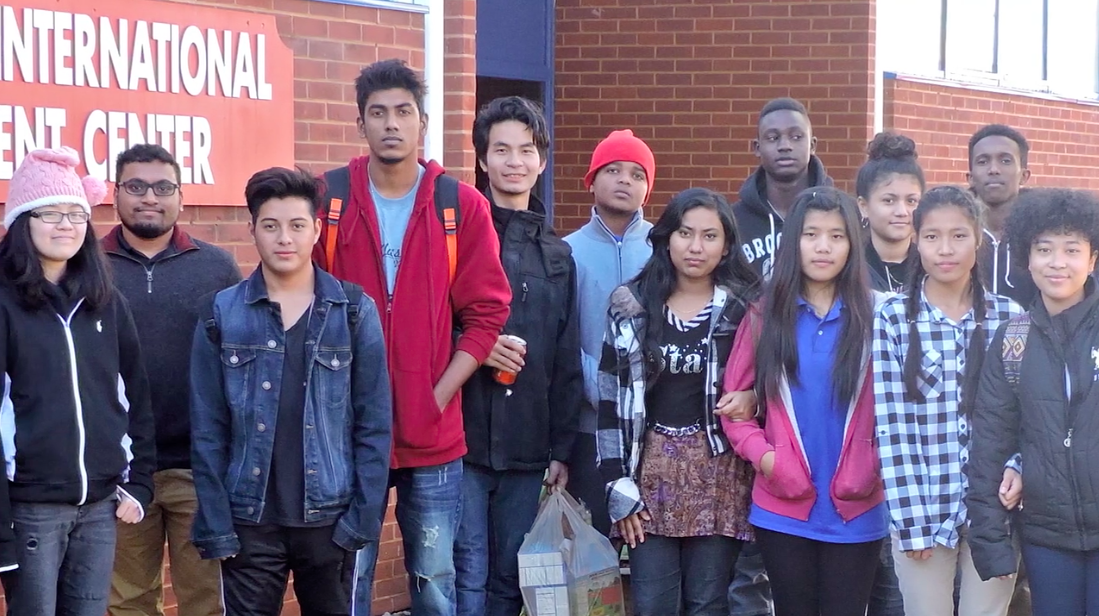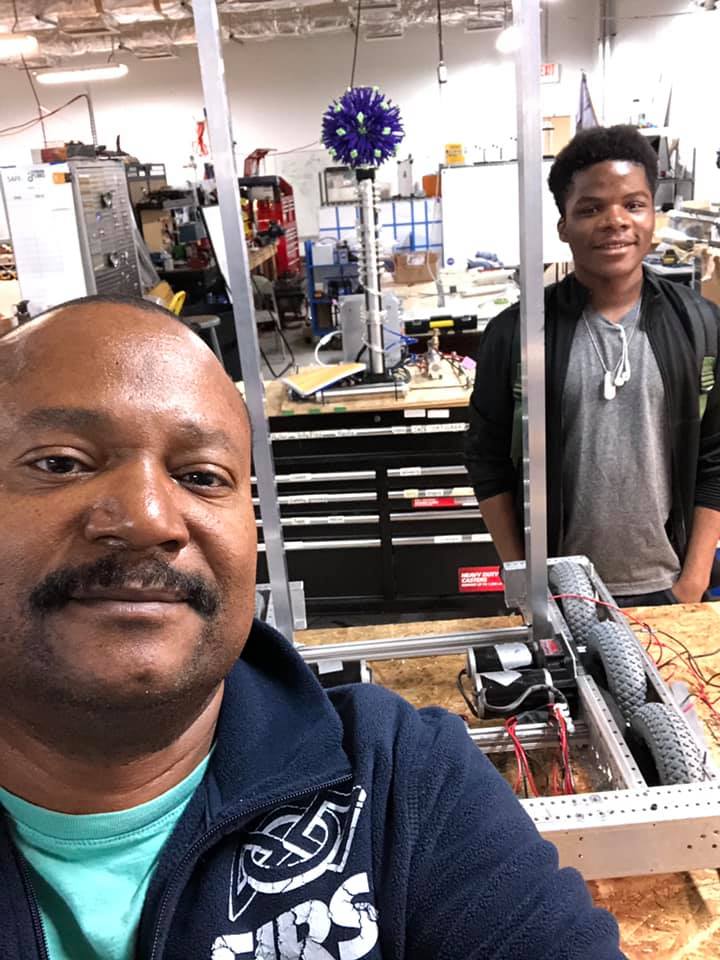
Photos by Discbots
Many members of the Discbots robotics team stand outside the DeKalb International Student Center in Atlanta. The highly successful robotics group includes a focus on social and emotional development.
ATLANTA — An Atlanta robotics team initially made up of refugee youth has racked up win after win in state and national competitions, successfully building “bots” at the same time they learn English and build new lives in America.
The Discbots, which started at the DeKalb International Student Center in Atlanta in 2013, is distinguished not only by its success against the odds, but by a focus on social and emotional strengthening.
“Underdog is an understatement,” said Edward Valentin about the team, which began with kids whose families had fled conflicts in their home countries, including Myanmar, Syria, Honduras, Ethiopia, Somalia and the Central African Republic. Valentin is chief operating officer of the Showcase Group, a nonprofit that provides counseling services to strengthen youth and communities.
Many of the students have spent years in refugee camps, and their schooling was disrupted, said Jeffrey Newell, Discbots founding coach.
One had been a child soldier. Others saw family members killed. Girls had been sexually exploited in refugee camps.
Anti-gang activity
In 2010, Newell began teaching science, social studies and English as a second language at the DeKalb International Student Center, which provides schooling and English instruction to newly arrived students. He came to believe that students from Myanmar, Vietnam and several African countries were particularly at risk of gang recruitment.
In response, he decided to offer an after-school robotics club. He started a middle school group that created a robot from leftover parts and won a Judge’s Award in its first competition.
That group went on to become the high school Discbots team, with 16 boys and 16 girls in 2015. Building the robots engaged them and they began to succeed in Georgia First Robotics competitions. At a divisional competition in Dalton, Ga., the team won the Rookie Inspiration and Highest Seeded Rookie Team awards.
“We were the highest rookie team in Georgia,’’ Newell said. “Everybody was talking about this refugee team.”
The Discbots made the state finals in April 2016.
The team also stood out because robotics is an after-school STEM activity concentrated in wealthy suburban schools, he said. “The dynamic is starting to change, however,” he said.
Expenses associated with robotics competitions can be high and the Discbots didn’t have money to travel to the state competition that year. It was a bitter disappointment. Newell vowed it would never happen again and founded a nonprofit, the Neo Engineering League of America, to seek sponsors.
In 2016 the team finished eighth in Georgia and went to the world championship in Houston, gaining sponsorship from Novelis.

Robotics coach Jeff Newell (left) organized the robotics team when he was a teacher at DeKalb International Student Center. Team captain Kalumbo Makuta is on right.
Robotics meets SEL
Valentin, who has served as a mental health consultant for a Georgia refugee health program, began visiting Discbots to incorporate social and emotional growth into the robotics activity.
He and colleague John Kennebrew come twice a month to talk to the whole group, but also sit down with some kids individually to talk things through.
“We teach young people the [elements] of psychosocial development,” Valentin said.
Students learn how to identify their emotions and understand what can trigger certain feelings.
“We help young people see the world a little bit differently than the way they are seeing it,” Valentin said.
The students support each other.
“In Discbots we’re not just solving mechanical problems. We’re brothers and sisters,” Emmanuel Tezear, a Discbots team member, told DCSD Magazine. “If somebody is sad or having problems, we understand that person and help solve what’s wrong. We all stand for each other.”
In his work as a consultant, Valentin had heard refugees say they often felt incomplete and alone.
“Their perception of themselves is fragmented,” he said.“They feel disconnected from others.”
However, at Discbots, the students “help build each other up.”
“There’s so much symbolism in building something,” Valentin said. The activity has a different meaning to kids who have experienced trauma, he said.
“The kids build these robots as if they were building their lives,” he said.
“Everything goes on in the building of the robots,” Valentin said. “Little failures trigger responses from the past.”
When those responses are examined, kids learn more about themselves and how to handle their feelings.
Today, the team is open to both young refugees and others who want to learn STEM in a hands-on way. It currently has 15 members, three of whom are girls.
Meetings take place at the Johnson STEM Activity Center in downtown Atlanta.
And in July, the Discbots will represent the United States at the Pan-African Robotics Competition in Ghana.





























